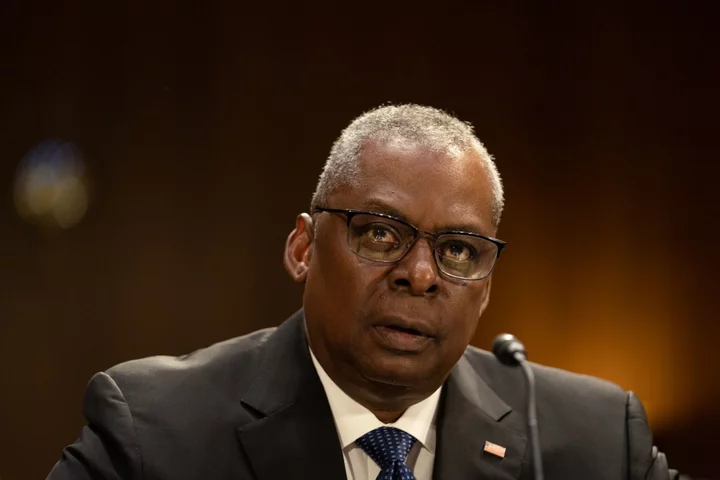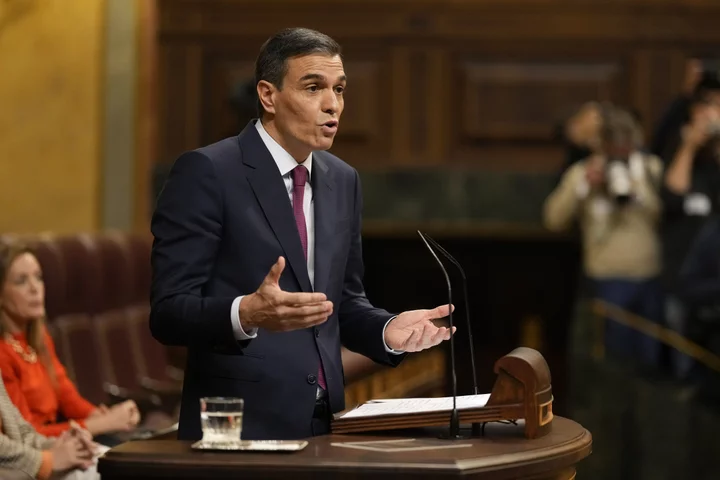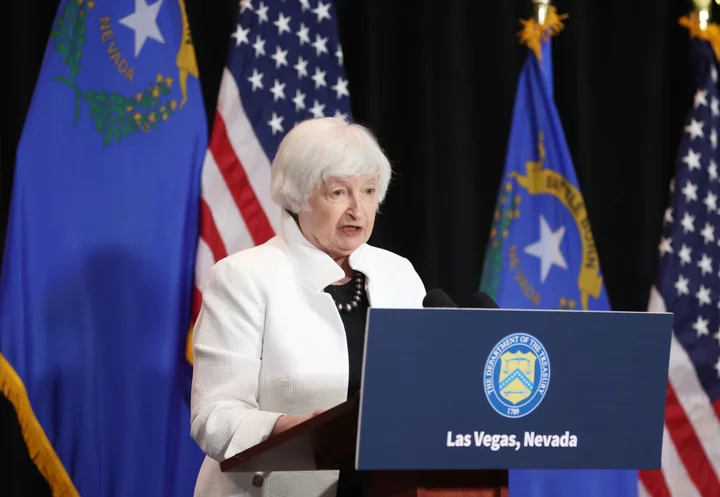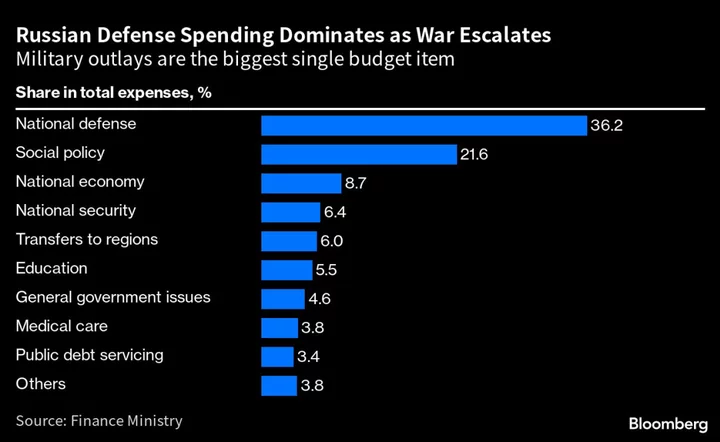The US is hitting a roadblock of its own making as it seeks to revive ties with China’s military: sanctions it imposed on the current defense minister back in 2018.
Chinese officials have so far rebuffed Defense Secretary Lloyd Austin’s request to meet with Defense Minister Li Shangfu at an event they’ll both be attending in June in Singapore. The reason is the sanctions that the Trump administration imposed on Li back when he oversaw an arms purchase from Russia.
China has formally told the US that Li wouldn’t be on equal footing with Austin if the sanctions stayed in place, according to people familiar with China’s stance who asked not to be identified discussing private conversations. They said China has said the meeting can go ahead only if the sanctions are lifted.
That has presented President Joe Biden with an unappetizing choice — keep the sanctions and lose the meeting, or lift them and risk courting scorn among China hawks in Washington that he’s caving to pressure from Beijing.
Lieutenant Colonel Martin Meiners, a Defense Department spokesperson, said Austin is able to engage in official government business with Li despite the sanctions, and the US continues to seek communication with China’s military “to ensure competition does not spill into conflict.”
“The department seeks to maintain open lines of communication with PRC military leaders, including the PRC minister of national defense,” Meiners said, referring to China by the initials of its formal name. “It has been the PRC’s decision to ignore, reject, or cancel multiple US requests for senior-level communication. We hope that the PRC will recognize the importance of opening up those lines of communication.”
China’s Foreign Ministry didn’t immediately reply to a request for comment.
‘Have We Achieved Anything?’
The administration’s predicament highlights the unintended consequences of US sanctions now that successive administrations have turned to them as a tool of first resort to signal disapproval or try to coerce other nations into doing what they want.
It also underscores Beijing’s leverage when the US needs to show a degree of conciliatory diplomacy to assuage US allies that Washington is managing relations responsibly with its key geopolitical rival.
“There are second- and third-order consequences of these actions,” said Christopher Johnson, president of China Strategies Group, a political risk consultancy. “Have we achieved anything by sanctioning him?”
“I don’t see the Chinese agreeing unless we take the sanctions off,” he said.
Li, appointed to his current post in March, was targeted by Washington in 2018 under the Countering America’s Adversaries Through Sanctions Act, or CAATSA. He allegedly aided in the transfer of Su-35 combat aircraft and S-400 missile system equipment from Russian arms seller Rosoboronexport to China.
But the US has selectively applied CAATSA sanctions, imposing them only when it thinks they serve its purpose. India — a nation that the US wants to avoid offending — has also bought the S-400, without facing sanctions.
Now the US may be wishing for a do-over.
The Biden administration wants to re-establish military-to-military communication with Beijing, which cut off several bilateral channels to protest then-House Speaker Nancy Pelosi’s visit to Taiwan last August.
US officials say that open channels of communication are vital to heading off conflict and reducing the risk of miscommunication. A meeting between Austin and Li is now seen as a top priority for Austin’s visit to the Shangri-La forum in Singapore in June.
Dissing Li
That in itself is a reversal. In March, after Li was appointed, the administration played down his significance.
“When it comes to this individual, as I understand it, this is a largely ceremonial role,” Ned Price, a State Department spokesman, said at the time. “It’s a different one than the role that Secretary Austin has in our system. But we are prepared to engage when it’s in our interest to do so.”
The lack of dialogue raises the possibility that an accidental collision or confrontation — perhaps by US and Chinese ships in the South China Sea — could escalate quickly out of control, perhaps sparking a broader conflict that would be catastrophic for the region and the global economy.
The Chinese have kept communication lines closed at times of spiking tensions between the US and China, including rejecting an attempt by Austin to speak with his Chinese counterpart — Li’s predecessor Wei Fenghe — around the time Biden ordered an alleged Chinese spy balloon shot down by a US Air Force jet in February. China has denied the balloon had any military function, saying it was a civilian climate research vehicle that unexpectedly drifted over American territory.
Although the US is used to compartmentalizing crucial military ties as separate from broader bilateral relations, the Chinese see military communication channels as part of the strategic relationship, said Melanie Sisson, a foreign policy fellow at the Brookings Institution.
“There’s a mismatch there in terms of strategic cultures,” she said. “There’s an argument to be made that China not engaging in those kinds of conversations increases the risk that the United States has to accept to continue to operate in those waters and in that airspace.”









